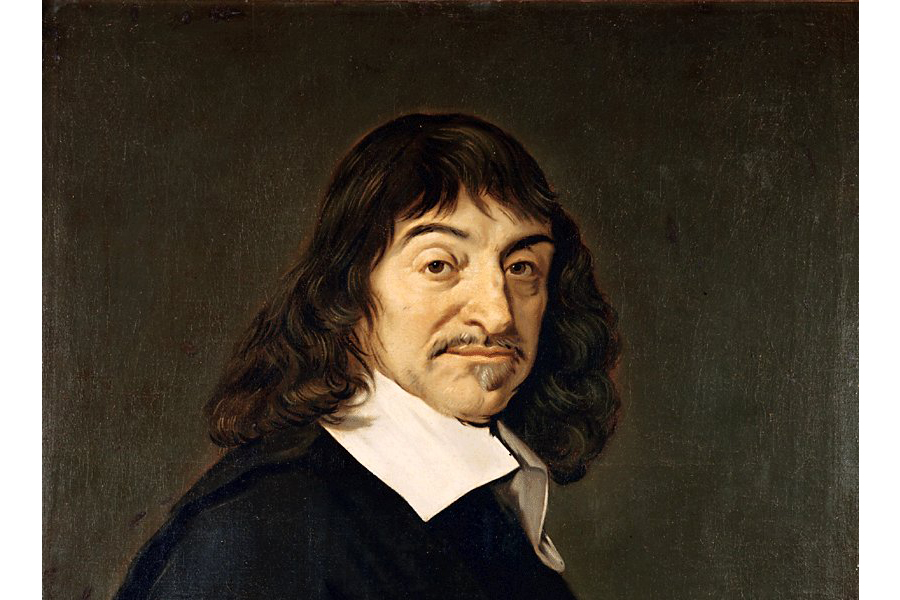
René Descartes shows the importance of studying across disciplines
Growing up, I never excelled in STEM classes or even wanted to be a scientist. My burning passion for science never extended beyond the time I accidentally set an entire Bunsen burner on fire. Still, I felt chained to the notion of engineering. After all, I had to keep in mind the job market, my future salary and, most importantly, the sweet, prestigious title gained from being an engineer.
In the past two years, I went from confidently wanting to be an engineer, to questionably wanting to be an engineer, to finally realizing the global chaos I would unleash if I actually became an engineer. After months of existential deliberation and turmoil, I ultimately settled my issue with the only sensible solution: I started studying Comparative Literature. I know, I know. Now I can both read and adopt the title of Dostoevsky’s The Idiot.
So what exactly is driving me to pursue a so-called useless humanities degree?
Our era cherishes STEM degrees for good reason: we’re in the midst of a technological age, and science plays an intrinsic role in humankind’s advancement. More now than ever, there’s a pressing need for STEM workers that isn’t going away any time soon. Unfortunately, this increasing emphasis on scientific disciplines seems to be resulting in a decline in the number of individuals seeking humanities degrees. And for some, a degree in the humanities just isn’t taken very seriously.
In defense of the humanities’ importance, I’d like to take the time to discuss someone who is, well, timeless: René Descartes.
Let’s start with his impact on philosophy, since this will be one of the only times philosophy gets prioritized over math. An independent thinker, Descartes unapologetically divorced his work from all formerly-established philosophical ideas. He nullified all preconceptions about philosophy, discredited his own senses and trusted only undeniable facts. During a time of severe conformity and stagnation within philosophy circles, Descartes kindled a radical movement toward skepticism that continues to influence philosophy today.
He eventually resolved his metaphysical inquiries by concentrating on science. The inventor of the Cartesian coordinate system and standard algebraic notation, Descartes developed many integral (pun intended) components of calculus and math analysis. Perhaps he sounds villainous to most students, but contemporary math would be unrecognizable without his contributions.
Believing that all truths were entwined together, he successfully used mathematical facts to unspool philosophical ambiguities. By weaving together two independent subjects, he simultaneously pioneered essential scientific and metaphysical processes — hence being dubbed the Father of Modern Philosophy and Father of Analytic Geometry. He almost has as many titles as a character from Game of Thrones: “René Descartes, First of His Name, Protector of the Two-Dimensional Plane, Breaker of Logic Chains.”
Now, Descartes was obviously a genius in several subjects, whereas most of us are just lucky to be somewhat talented in anything at all. We can still learn a lot about discovery through Descartes’ work, though.
Innovation almost always blossoms at the crossroads of science and art. (I think my former government teacher said that — thanks, Mr. Adams!) We need science’s momentum, rationality and practicality in order to cure diseases, prevent and alleviate environmental damage and create electronics that we rely on every day. But we also need the humanities’ balancing contemplation, empathy, and imagination to teach justice and morality, challenge established beliefs and help us appreciate our differences in cultures, religions and political affiliations. Therefore, science and the humanities aren’t just intertwined; when balanced perfectly, they bring out the best in one another.
That’s why I’ve come to terms with not being an engineer. If our goal is the advancement of mankind, and if advancement is often rooted in interdisciplinary collaboration, we shouldn’t neglect our personal skill sets. They could respectively help push humanity forward, even in the most microscopic way.
I still want that prestigious title, though.
Written by: Taryn DeOilers — tldeoilers@ucdavis.edu









